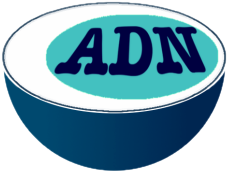Orateur
Summary
Heterogeneities in nuclear organization are present at all scales. From whole chromosomes to single loci, the genome assumes a hierarchy of reproducible but probabilistic spatial patterns in the nuclear space – defining concepts such as chromosome territories, nuclear compartments, topological domains and chromatin loops. Related to this notion of spatial heterogeneity, is the idea temporal heterogeneity, such as the fact that the transcription of many eukaryotic genes occurs non-uniformly over time as discrete bursts of transcript synthesis, and more generally the idea that the genome does not function at equilibrium and is organized and expressed in a dynamic and probabilistic fashion.
My research focuses on understanding these heterogeneities in the organization of the nucleus and the expression of the genome using a panel of approaches, from computational modeling to live-cell microscopy. In particular, we use an imaging approach (MS2 and PP7 RNA labeling) to visualize single RNAs in multiple colors in living cells. This technique allows following over time the amount of nascent transcripts from one or several gene(s) of interest as well as their position in the nuclear space. We also developed an analysis method to reveal, from the resulting time traces, the kinetic relationship and coordination between the underlying molecular processes. I will first present my earlier work on the kinetics of transcription and RNA processing, before describing the future plans for my group in studying the relationship between transcriptional regulation and the physical organization of the genome in the nuclear space.
